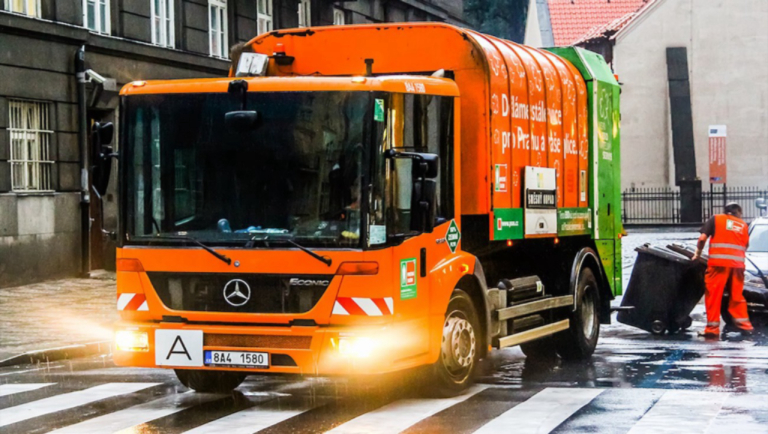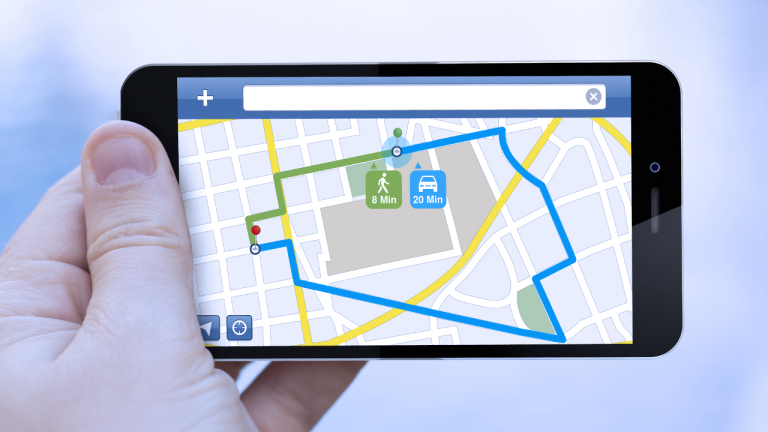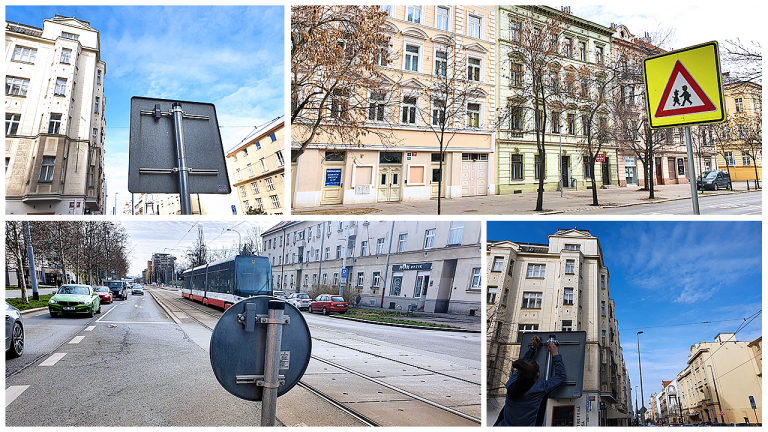
The year 2020 was for Operátor ICT, Plc., (OICT) in the Smart Prague area another successful year in terms of innovative projects implementation into the daily life of Praguers and Prague visitors. Six approved project intentions (Testing an innovative technology for traffic signs, Smart Prague Center, Techno-economical study of the Autonomous mobility in the Capital City of Prague pilot study, Green city 1st stage – GreenPlace, Traffic Intelligent Analysis, Mass iD – unified registration and mobility service payment), which The Commission for Smart Cities Concept Development in the Capital City of Prague (Smart Cities Committee) recommended to be realized, but as well five pilot Smart city projects (Prague Virtualization, System for an Automatized Entry and Exit of Vehicles at a City Parking Lot, Smart Waste Collection, Digital Energy Measuring, eHealth – Metropolitan Distress and Health Care System) which came out well during the year 2020. In aggregate, we implemented or partook at implementing approximately 30 Smart City Projects.
Despite the pandemic caused by COVID-19 proliferation we did as well succeeded in international cooperation (first Smart Prague Index in English, attending MUNI Expo 2020 in Tel Aviv, establishing a partnership with British agency FutureGov), or supported interesting projects which we help to develop even further.
During the year we hosted four Smart Prague working groups and two Smart Prague Councils which help to coordinate projects from the Smart Cities area at a whole-Prague level. The output from this cooperation is the completion of the Smart Prague Action Plan till the year 2030 which accumulates about 150 project aims and would-be-implemented ideas. The progress in the field of innovations implementation has brought also a great 39th place from 174 assessed cities within the CIMI Index 2020 assessment which is annually processed by IESE Business School University of Navarra. Prague has improved its position by eight places as distinct from last year.
Owing to our activities we succeeded in receiving several awards. „It is mainly the case of an award for Smart Waste Collection which was amidst IT Project of the Year 2019 finalists, which is given by The Czech Association of IT Managers, another one, third place this time was bore off by System for an Automatized Entry and Exit of Vehicles at a City Parking Lot in Parking Lot of the Year competition in Innovation category which is held by Czech Parking Association,“ adds OICT Deputy Chairman and Project Management and Funds Section Director Matej Šandor who conducts exactly Smart Prague agenda.
Particular achievements of OICT in the Smart Prague area being covered in this article testify to the fact that the COVID-19 outbreak has not stopped us from the endeavour to implement innovations in Prague.
At the beginning of 2020, the OICT team of energy specialists prepared for Prague a public analysis focused on data related to energy consumption in city-owned buildings which had not existed till then. Gathered data enable to identify an uneconomical energy usage in selected Prague objects and to suggest an effective energy management systém which could be subsequently utilized for all buildings which are property of the city of Prague. Analysed data are the result of the Energy Ecosystem, Complex Energy Management and EPC projects fallen within the Smart Prague area with Smart Buildings and Energy. In an interactive report published at Smart Prague web or golemio.cz everyone can inspect information about energy properties of altogether 94 buildings of The Capital City of Prague which were gathered into the project.
At the end of the year 2020, we acknowledged the first positive results on successfully implemented project Energy Measurements Suitability Analysis by the EPC Method, for instance at Aquacentre Šutka where we thanks to swapping of 550 pieces of fluorescent and halogen lamps for LED lamps achieved a total power input decrease by 60%. Thus lightning costs decreased by appreciable 470 thousand Czech Crowns annually. Here we also installed an innovative technology which brings water after cleaning back to use. Another example is Olive Sanatorium in Říčany. Within this project a boiler replacement and 103 solar panels procuring 30 Wp power installation took place. Produced electric power is used during direct energy consumption at the medical institution and possible surplus is accumulated in a hot water storage tank which is subsequently used within the building operation. Annual costs savings for electric energy equal to 85 thousand annually, which is roughly 10% of the total cost of electric energy at Olive Sanatorium. Implementing energy measurements is possible in the case of historical conservation buildings. The Municipal House is evidence for that because we helped there to install boilers with higher combustion efficiency and produced emissions decrease. Praguers can thus breathe much better around The Municipal House.
In February 2020 an interesting project with the title Testing of Innovative Technologies for Road Signalling Management was given consent from Prague City Council (TCCPC). The project aims to test IoT technologies giving information for instance about GPS location or location change compared to the default state of already used or newly installed road signs, which will enable their remote control. The advantage of this technology is also intelligent road signs testing with a variable display of a supplementary table with the possibility of remote settings. The gathered information will be displayed to primary users which are city companies – Prague Services, Plc. and Technical Management of the Roads in The Capital City of Prague, Plc. (hereinafter TMR). The opening of the operational stage of the project is planned for the first quarter of 2021.
In the first quarter of the year 2020, a pilot project of System for an automatized entry and exit of vehicles at a city parking lot was successfully finalized. Specifically, it was the case of P+R in Letňany. Within the testing of the automatized entry and exit from P+R Letňany not only an economic advantage of this solution was proven, but mobile applications utilization as universal payment channels for contactless payments as well. Mobile applications of the Lítačka card provides navigation of users to the parking lot or displaying online statuses about their occupancy. Due to the pilot project automatized entries and exits can be implemented at approximately 20 P+R parking lots of the city which will secure better user comfort when used by these citizens. According to the information from TMR embedding of this tested technology should take place during the year 2021. This project was given third place in the Parking Lot of the Year in Innovation category which is held by the Czech Parking Association. We have been intensely working on parking problematic for city company TMR for which the team of OICT Project Office during 2020 finished a study and analysis focused on payment channels in paid parking zones. From this study emerged that a stronger and stronger trend has become to pay for parking via mobile applications and their role has been increasing. Therefore we began preparation works in autumn to secure direct payments for parking in the mobile PID Lítačka application. This functionality is available in the app via a third-party which should change during spring 2021. This novelty will bring many benefits to its users because they will be able to search for connections, buy tickets for city public transport and pay the parking fee in the paid parking zones. The necessity or need to register a payment method for more spots will be dropped and the very parking fee payment will be more user-friendly. Smart Prague still actively partakes in the Quiet Transport technology under the auspices of TMR which wills to people parking in The Capital City of Prague simplify their lives at the most and to provide a modern approach in the parking process by use of new technologies.
In late June 2020, Prague City Council as well approved the final report of the Smart Prague pilot project with the title Smart Waste Collection. Thanks to this project more than 460 sensors placed in sorted waste containers were installed in the Czech metropolis. Actual data with information about the true fullness of particular containers were afterwards provided to respective municipal parts involved as well as to all Praguers via Moje Praha (My Prague) application. The ambition of this tool is to provide new information about utilization to The Capital City of Prague and to help make more precise and assess investments expenditure into collection frequency and thus optimize waste collection in the capital city. For this project, the team of Smart Prague OICT Project Office received an award within the 17th IT Project of the Year 2019 which is awarded by the Czech Association of IT Managers (CACIO). In autumn we were contacted by technology for a level of fullness in containers measurement producers with whom we decided to test this new type of sensors. The sensors use laser beams which allow for changing direction and wideness of the scope of measuring. The new device uses Narrowband Iot (NB-IoT) technology for communication which in The Czech Republic is operated by the Vodafone Czech Republic, Plc., instead of current Sigfox and LoRaWAN. It is thus possible to measure the fullness even in those places where the current networks had not provided enough coverage. Following the results of this project, we are preparing its extension into another 6000 places around Prague.
An important topic for OICT activities in Smar Prague are in the year 2020 was the area of electromobility. For The Capital City of Prague, we prepared a District Plan for recharging infrastructure in Prague which is based on an elemental initial idea for developing recharging infrastructure for electromobiles in Prague. We expect the approval of this document in 2021. OICT Smart Prague Project Office contributed by their activities to securing the first 14 electro car supply out of 27 for state-funded institutions of The Capital City of Prague. These were bought to decrease particles emissions and nitrogen oxide caused by traffic and to decrease noise load in the urban environment. They were bought thanks to financial means from the State Environmental Fund of The Czech Republic. With the development of electromobility in the metropolis is linked yet another project bus connection electrification by the means of standard oppcharge which implementation OICT started in 2020. The 134 bus line which regularly transports passengers between the Podolská vodárna and the Dvorce stations will become the very first connection to have so-called standard oppcharge deployed by the capital city.
The futuristic topic of autonomous mobility is not left apart. By the end of the year, 2020 OICT were authorized by preparing and devising a technological-economical study for autonomous mobility in Prague pilot project to improve current capacities of transportation roads efficiency and gradual deployment of autonomous vehicles into Prague traffic. This stands as another example of the fact that OICT is a highly active partner to the city in the area of innovative solutions in the traffic area and that is in public and individual alike. Automatization and innovative ways of driving in car traffic are related to the constantly increasing popularity of new transport services and Mobility as a Service service.
In 2020 an eHealth – Metropolitan System project, which response to securing a higher standard of care for the elderly and disabled people were finalized and successfully evaluated. Utilizing new modern technologies increase the sense of security of users in everyday life at home as well as outside. In practice, this service looks as follows: a client on the grounds of a recommendation from a physician is given a lent electronic device – a “wrist band” – thanks to which by simply pushing an SOS button a call for help is sent if their health gets worse. The device can for instance detect falling and automatically switch on the alarm. It is these two alarm types when clients find themselves in solitary in a household, were the most frequent during the project. The main aim of the project was to suggest, build and effectively run metropolitan distress and health care system and thus contribute to safety a standard of living increase to persons with decreased self-sufficiency. OICT in cooperation with CTU UCEEB (University Centre for Energy Efficient Buildings CTU in Prague) concurrently defined innovative distress care service technical requirements to secure the highest service standard. Thanks to the eHealth pilot project we managed to gain exceptionally good and detailed feedback from users themselves. From this univocally follows that the need for distress care is a fact and its importance is about to increase in the future. The information which was due to the project gathered is possible to utilize not only for The Capital City of Prague but for national strategic documents or other regions as well.
In 2020 OICT also succeeded in pushing through The Capital City of Prague status change which is gathering data on ongoing building controls and such in an anonymous way with differentiation at the cadastral unit. It is another among important steps which will enable to identify real causes of issues with slow-building control and to run the city based on hard data. Thanks to this project Prague will draw away from the rest of the republic where data collection based on a statewide solution should start in the year 2023.
Within the running projects, we were realizing data collection about cycle traffic for The Capital city of Prague. Information about the number of cyclists numbers come from adding machines which we have 29 at the moment, sent on 5-mins cycles and each location can discern the direction of cyclists’ ride. OICT secures data collection a store it into the data platform of The Capital City of Prague – Golemio where it stays at disposal in open data form to all potential users and the public.
Within the scope of data securing about pedestrian traffic intensity OICT started in spring 2020 a long-prepared project with the title Public Space Pedestrian Traffic Intensity which aims to test technologies for pedestrian mobility detection in public spaces with the help of sensors and advanced video analysis sustaining movement detection. Obtained data through which it impossible to identify personnel (from respective sensors and the advanced video analysis) will be transposed into the data platform of The Capital City of Prague (Golemio), stored there and onwards processed according to the needs of individual partners.
The first weekend in May 2020 in cooperation with OICT a hackathon unihack.cz took place where talented students from Czech universities joined forces with experts to help companies to cope with coronavirus economic impacts. The price was given by OICT to the winning team GreenPlace which has come up with an application draft enabling effective verdure management with the public involvement. The winning solution will enable anyone thanks to the GreenPlace application take a picture of a tree in Prague, send the photograph and due to artificial intelligence an assessment of the tree’s current condition will occur. As well unique is open data involvement with the use of artificial intelligence which efficiently spreads the workload and operating flexibility of the people looking after the city verdure and at the same time will give the municipality a tool into their hands pro effective management. It is this topic which fights climate change that is that important for us and we look forward to furthering cooperation on the project development with the awarded team members. The project was along with the winning team elaborated into a project aim shape with the name „Green City 1st Stage – GreenPlace“ and submitted to Smart Cities Committee which commended its realization.
At the end of the year 2020, two new project aims were recommended by the Smart Cities Committee (MassS iD - Unified One-Spot Mobility Services Registration and Payment and Intelligent Traffic Analysis) which are suitable for co-funding from EU grants, particularly from Operational Programme Prague – Growth Pole of the Czech Republic. The main aim of the Mass iD project – unified one-spot mobility services registration and payment is the creation of a new unified registration and payment system for mobility services in Prague and its catchment area. That means in practice that PID Lítačka functionalities are going to be expanded. Registered users of the application will have next to the current overview of travelling possibilities by Prague public transport newly information about other means of transport, for instance, Bikesharing, carsharing or taxi services. At the same time, the application will allow to par for respective services from one spot. Owing to the project citizens will have functions making mobility services use easier and faster. MaaS iD will secure an even deeper size of integration of mobility providers in Prague into one ecosystem in which the capital city can hold an aggregator role of these services. Due to this will mobility in the capital city be more transparent and solved in terms of design.
The project Intelligent Traffic Analysis aims at solving the question of statistical traffic data obtaining about Prague means of transport traffic operation by using a high-quality tool which will be able to comprehensively ascertain crucial traffic data at most and will thus secure support for accountable traffic questions decision making. All utilized data that were employed for the project purposes will be anonymized. There is no such a huge tool available at the moment which would be able to gather al the data for a whole day, week, month or year. The solution consists of software development which thanks to innovative artificial intelligence and due deep neuronal learning will be able to identify all information 24/7. It is necessary to use cameras. This appears as an unequivocal advantage because Prague is sufficiently covered by the Urban Camera System of The Capital City of Prague. An analytic and visualization interface for respective users will be developer based on this statistic data.
Non-Project Activities
During the year agenda linked with citizens participation in the I Have an Idea platform was developed. Via this initiative citizens can send their spurs for life improvement in the city in all Smart Prague areas. During the year 2020, we received altogether 38 proffers mostly from traffic and city environment. Suggestions go through several assessment rounds: internal assessment across Operator ICT, Plc., external assessment by an evaluator from the academic field, particularly from CTUP and CU and are subsequently evaluated those urban organizations and the municipality itself. If the potential, as well as implementability, are proven they are further elaborated into so-called project cards and submitted with recommendation of more detailed working up to Smart Cities Committee. Towards the end of the year, 3 project cards were submitted of which two were recommended for further elaboration and in more detail submission.
For the third time in a row OICT published in the year 2020 Smart Prague Index yearbook which was in English as well for the first time. This document monitor how in the past year The Capital City of Prague stratégy in the Smart Cities area was successful at fulfilling it. Smart Prague Index provides a precise analysis of how Prague is successful in transforming due Smart City elements towards a smarter and more sustainable way. Precisely the knowledge of the state, needs and city behaviour is a key into better planning and more efficient decision making but serves as well the experts to broaden their views about Prague operation in Smart City area. As every year the Index was worked upon by dozens of partners from the public and private sector alike.
Cooperation across the city manifested itself in the preparation and following finalization of the Smart Prague 2030 Action Plan. In June 2020 Smart Cities Committee recommended its first version which contains a set of 98 projects and 55 ideas in the Smart Prague area which can be realized till the year 2030 and at the same time rules were set for their implementation success rate determination, so-called KPI. Prague City Council approved this document in November 2020 where Operator ICT, Plc. was authorized to work up to its second version which will monitor workings on projects and the advancement of their ideas. Concurrently a web presentation was deployed at smartprague.eu/akcni-plan.
In cooperation with Prague City Hall and other city partners, OICT finalized the Alternative Fuels Strategy for Prague till 2030 and further started for Prague City Hally providing project management services for the needs of project management with Open Project information system deployment.
During the first half of 2020, we were also cooperating with Prague City Hall on a unique Prague Innovation marathon by the name „Kick-Start Prague“. Within the three-round evaluation of submitted projects, a Superhero Senior winner was announced in the middle of June which thanks to a mobile application of the same name and web senioremsradosti.cz tries to facilitate seniors’ lives in the capital city of the republic. The first three winning teams also received the possibility to develop their projects which OICT in cooperation with The Capital City of Prague continue to help with.
In 2020 OICT continued to hold already beaten Smart Prague working groups where approximately 23 representatives of urban organizations four times a year regularly inform about projects and updates in Smart City are in Prague. A vital part of these gatherings is to support cooperation and coordination on particular projects leading into the city’s smartification. The so-called Smart Prague Committee has been successfully organized twice which is organized and put together by OICT for mutual awareness in Smart Cities are for the public and academic sphere. Smart Prague Committee provides feedback towards the Smart Prague concept till 2030. It supports process transparency increase. It is an advisory board for further strategic heading both the conception and thematic units in Smart Cities are in Prague.
Foreign Cooperation
Before the covid crisis, we could partake at Smart Cities international fare entitled Muni-Expo 2020. During the three-day program, we were discussing Smart City solutions, city safety and sharing experience with foreign partners with city data utilization as well as parking, public transport and electromobility. We participated in the panel devoted to repeated water usage and whole water recuperation and retention in cities and visited an innovation centre that became the Smart Prague Centre big inspiration and which is a space for innovations supported in June 2020 by Smart Cities Committee. Within the scope of foreign relations and an online meeting between the Smart Prague OICT project office and the Business Finland representatives took place in May where the possibilities of cooperation and experience exchange in the Smart City area were discussed. In cooperation with The Capital City of Prague engagements on Expo in Barcelona, attendance was underway, which in the end was moved to the next year. In cooperation with The Capital City of Prague and the Norwegian embassy, a conference (4. 5. 11. at CAMP) was being prepared. The main topic of the event was the experience with Smart City projects exchange, regrettably this one was cancelled as well and shifted to more convenient period. Close to the 2020 OICT started to cooperate with the British agency FutureGov, which aim is to build public sector organizations for the 21st century which are a catalyst of changes in the age of the internet and climate change. The agency support organization with digital transformation, service design and community growth.










